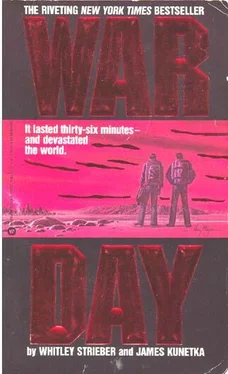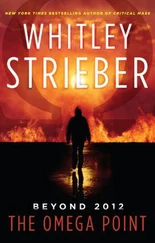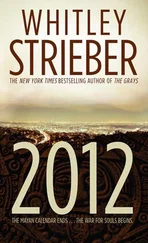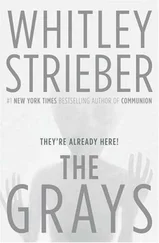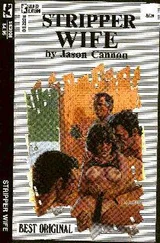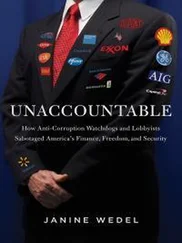My greatest fear was fire.
I found the school closed and locked. There were lots of broken windows, but the lower floors were barred. I shouted and the Latin teacher opened the front door for me. Inside, the kids were sitting quietly in the great hall with their teachers.
“What’s going on?” Mr. Lewis asked me.
“I think we’ve been hit by an atomic bomb,” I replied.
He nodded. “We all think that.”
I went to my boy. He jumped up and flew into my arms, and then started screaming because he saw all the blood on my back.
The school nurse came over to tend the wound. She said I needed at least five stitches. But what could we do? I ended up with a brushing of Betadine and a bandage.
The phones weren’t working, so I couldn’t call Anne. It was then that I made the decision that saved my life.
I didn’t know it at the time, but like all people caught outside during the initial stages of the disaster, I had received a radiation dose. If I had gone out even another fifteen minutes at the height of the fallout period, I would have quickly dosed red and then lethaled. What kept me from doing so was my belief that my wife’s instinct would also be to come to the school and I was more likely to find her by waiting than by searching.
Not ten minutes later she appeared. She was wearing my felt hat and carrying an umbrella. I will never forget how it felt to kiss her at that moment, to feel her in my arms. And then Andrew said, “Let’s have a family hug.” We held each other, and I told them both what I thought had happened.
Anne is a practical person. She had no idea what had happened—in fact, her theory was that a volcano had erupted—but she suspected that in any case we might get hungry, so she’d brought a box of freeze-dried food we had put aside years ago for a camping trip and never used. She’d also brought a little news of home: the power was out, the radio and TV were dead, the phones weren’t working, and there was hardly any water pressure. Every window in the apartment was broken. The dishwasher was stopped on rinse and the clothes washer on spin. She reminded me that I had the video recorder set to tape a movie on HBO at five o’clock, and the power failure was going to mean that I would miss it.
Other parents were now arriving at the school. The Head moved the children into the gym, which had no windows, and we decided to make that a shelter for all the families who wanted to stay. Anne and I went to the locker room and took long showers.
Some of the parents who did not take this precaution died in days.
Others were unaffected. For the most part it depended on how long they had been outside, and whether or not they had been shielded from the initial burst of gamma rays from the blast. We had the church right there, of course, attached to the school. Grace is probably New York City’s most beautiful church, and it served us well in the next few days. It could be reached from the school without going outside. While the city died, we prayed there. At that time I wondered if humanity would prevail. Despite what was happening, I found myself trusting the goodness in us more than hating the violence. I still feel that way.
Of that night there remains with me the memory of a particular noise: footsteps on pavement. It was persistent thunder, and mixed with the cries of the hurt and desolate, it defined those hours.
By 6:00 P.M. the sky was black, the air very still, the sun a lifeless maroon shadow on the western horizon. Many parents were at the school, but not many families were complete. Some of the kids were still waiting. Some had left. They didn’t come back. Every so often another mother or father would appear out of the gloom, and we would count a victory.
By now it had occurred to us that there must be dangerous radiation, so we were trying to keep trips outside to a minimum, and had hung blankets over the windows.
Throughout the night, the rattle of walking continued as people crossed Manhattan, heading for the tunnels and bridges, trying to get out of the city on foot. Once we saw a fire truck—obviously too old to have an electronic ignition and so not immobilized by the electromagnetic pulse—making its way down Fourth Avenue, trying to negotiate a path among the reefs of stalled cars. It was soon lost in the gloom. The eastern sky glowed like the inside of a furnace, a deep, fearsome orange. Toward midnight it began to rain pieces of burning tar. They looked like meteors coming down into the streets and onto roofs. I thought then that this was the beginning of the end—the firestorm was crossing the river.
By this time the little group at Grace had become a community of sorts. We organized ourselves as best we could, trying to find our way to survival. There was no information, only the crowds and the confusion and the burning streaks of tar. Two of our group went to the roof to put out any fires that might start there. They held plastic dropcloths from the art room over their heads as protection from cinders and radiation. The fallout worried us even more than the fire. We knew little about it. Was there still too much radiation in the air, or should we join the exodus west instead of trying to fight the fire? We just couldn’t recall. On balance, most of us decided to remain at the school a little longer. At least we were reasonably safe there for the time being. We also had light from church candles, food from the school’s larder, and water from the tower, which we hoped wasn’t contaminated by radiation.
Our first case of radiation sickness started at about eleven that night. Meg Parks began sneezing. She had walked down First Avenue all the way from Eighty-ninth Street, where she had her office.
She was a psychiatrist, and her two girls were in the school. By 2:00 A.M., Meg had fever and was breaking out in a rash. She was vomiting and suffering from severe diarrhea. We tried to get water into her, and the school nurse gave her Kaopectate. But it was all quite useless. Her husband, Peter, still had not appeared, and by morning we decided to take her over to St. Vincent’s Hospital.
Bob Tucker and Fred Wallace volunteered to be stretcher bearers.
We suspected that the streets might be dangerous, so three more of us went along: Jerry Fielder, Tom Roote, and myself. As Tom had a .38, we considered ourselves relatively safe.
We were less concerned about radiation now. A brisk west wind had come up about midnight, blowing not only the firestorm away from Manhattan, but the fallout as well. As we went down the street, though, I wondered; our feet crunched on a thick dusting of ash. We kept on—it was unthinkable that we should just let Meg die because we were afraid to go out.
We carried her in a hammock made from a blanket. She lay quite still. She was coherent and she joked that swinging her in a hammock had to be the hardest labor any of us had done in years.
She was having frequent convulsions, and she looked very weak.
To the east the sky was now filled by a massive gray-white cloud. Closer, there were tall columns of smoke.
On our way across Thirteenth Street we counted many dead.
Forty, I think, all shot or beaten or, in one particularly horrible case, burnt. There were fires smoldering here and there, but nothing devastating. We didn’t know it, but at this time hundreds of thousands of people were dying on Long Island as the firestorm swept eastward.
We were a block away from St. Vincent’s when we understood our mistake. The crowds were so thick we couldn’t move a step forward. There was the disgusting tang of vomit on the air, and many people were lying in the street, sick to death and helpless. There were burned people everywhere, many of them also suffering from radiation sickness. We could hardly stand to see it. We fell silent, we turned away.
Читать дальше
